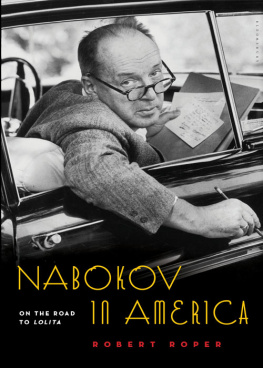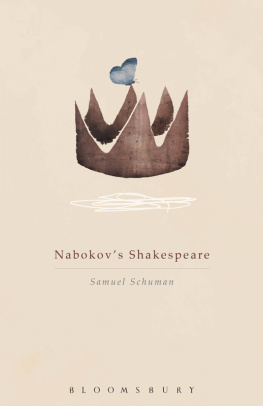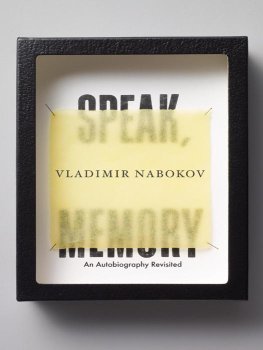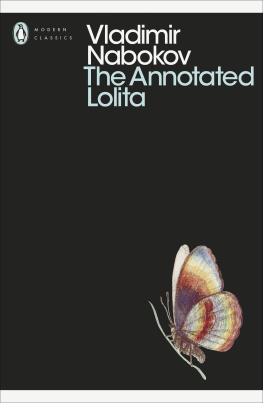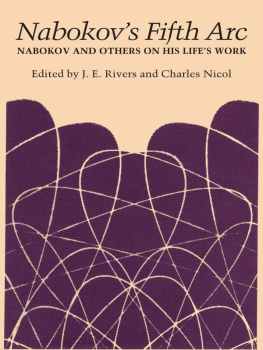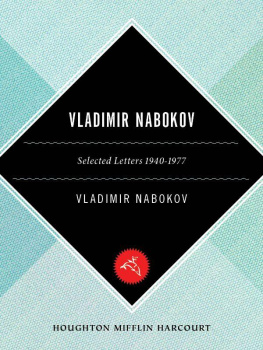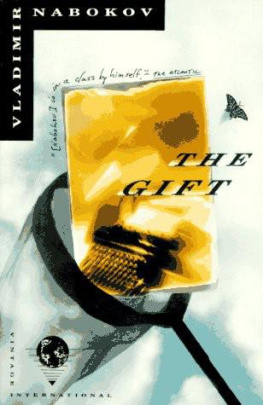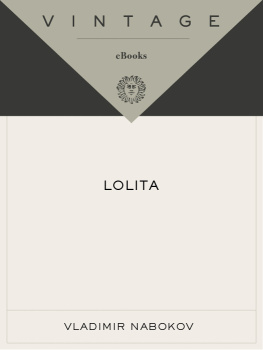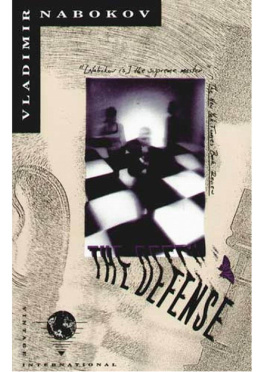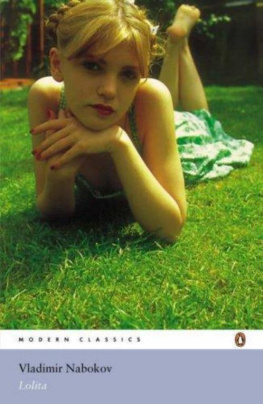Nabokov and Nietzsche
This book is dedicated to Dr John Burns, who introduced me to three of my favourite things: how literature works, Bob Dylans Biograph (1985) and teaching done well.
Nabokov and Nietzsche
Problems and Perspectives
Michael Rodgers

CONTENTS
I am, and forever will be, especially grateful to a number of people who have helped to sculpt this project into what it is now: Elspeth Jajdelska and Tom Furniss for their patience and perspicacity; Thomas Karshan and Rune Graulund for their scrutiny; Susan Elizabeth Sweeney for her mentorship; Haaris Naqvi, Katherine De Chant and the two anonymous reviewers at Bloomsbury for their encouragement, support and pointing out what should have been; Sonia Bates for lending her Russian eyes and ears; Barbara Bair at the Library of Congress for her prompt and invaluable help; my parents, for their continued support in all that I do; and, finally, my partner, Lucy Weir, for her unwavering belief in my writing and for providing numerous perspectives to numerous problems.
A short section of the introduction appeared, in a slightly different version, in The Original of Laura and Nietzsche: A Zarathustran Tool?, in Shades of Laura: Vladimir Nabokovs Last Novel, The Original of Laura (ed. Yuri Leving, 2013). Reproduced here with kind permission of McGill-Queens University Press.
A condensed, and slightly different, version of , The will to disempower: Nabokov and his readers, first appeared in Nabokov and the Question of Morality: Aesthetics, Metaphysics, and the Ethics of Fiction (ed. Michael Rodgers and Susan Elizabeth Sweeney, 2016). Reproduced here with kind permission of Palgrave Macmillan.
A condensed, and slightly different, version of , Lolitas Nietzschean morality, first appeared in Philosophy and Literature, Volume 35, Issue 1, April 2011, 10420. Reproduced here with kind permission of Garry Hagberg at Philosophy and Literature.
Images of Vladimir Nabokovs notebook from 1918 entitled Stikhi i skhemy (Poems and Schemes) were sourced from Box 10, Folder 25, Vladimir Vladimirovich Nabokov Papers, Manuscript Division, Library of Congress, Washington, DC.
Works by Vladimir Nabokov
| Ada | Ada or Ardor: A Family Chronicle (London: Penguin Books, [1969] 2000) |
| BS | Bend Sinister (London: Penguin Classics, [1947] 2010). |
| Collected | Collected Stories: Vladimir Nabokov (London: Penguin, [1995] 2001). |
| Def | The Defense (London: Weidenfeld and Nicolson, [1930] 1964). |
| Des | Despair (London: Penguin Books, [1965] 2000). |
| Gift | The Gift (London: Penguin Books, [1963] 2001). |
| Invitation | Invitation to a Beheading (London: Penguin Books, [1959] 2001). |
| LL | Lectures on Literature (New York: Harcourt, 1980). |
| Lo | Lolita (London: Penguin Books, [1955] 2000). |
| LRL | Lectures on Russian Literature (London: Weidenfeld and Nicolson, 1981). |
| Mary | Mary (New York: Vintage International, [1926] 1989). |
| NG | Nikolai Gogol (London: Penguin Classics, [1944] 2011). |
| NWL | Dear Bunny, Dear Volodya: The NabokovWilson Letters, 19401971 (Berkeley: University of California Press, [1979] 2001). |
| PF | Pale Fire (London: Penguin Books, [1962] 2000). |
| Pnin | Pnin (London: Penguin Books, [1957] 2000). |
| SL | Vladimir Nabokov: Selected Letters, 19401977 (New York: Harcourt, 1989). |
| SM | Speak, Memory: An Autobiography Revisited (London: Penguin, [1967] 2000). |
| SO | Strong Opinions (New York: Vintage, [1973] 1990). |
| TOOL | The Original of Laura (London: Penguin Classics, 2009). |
Selected works related to Vladimir Nabokov
| VNRY | Vladimir Nabokov: The Russian Years (Princeton, NJ: Princeton University Press, 1990). |
| VNAY | Vladimir Nabokov: The American Years (Princeton, NJ: Princeton University Press, 1991). |
Works by Friedrich Nietzsche
| AC | The Anti-Christ, Ecce Homo, Twilight of the Idols, and Other Writings (Cambridge: Cambridge University Press, 2005). |
| BGE | Beyond Good and Evil: Prelude to a Philosophy of the Future (London: Penguin, [1886] 2003). |
| BT | The Birth of Tragedy (London: Penguin Books, [1872] 2003). |
| Day | Daybreak: Thoughts on the Prejudices of Morality (Cambridge: Cambridge University Press, [1881] 1982). |
| EH | Ecce Homo: How One Becomes What One Is (London: Penguin Classics, [1888] 2004). |
| GM | On the Genealogy of Morality (Cambridge: Cambridge University Press, [1887] 1994). |
| GS | The Gay Science: With a Prelude in Rhymes and an Appendix of Songs (Cambridge: Cambridge University Press, [1882] 2001). |
| HATH | Human, All Too Human (London: Penguin, [1878] 2004). |
| Reader | A Nietzsche Reader (London: Penguin Books, 2003). |
| TSZ | Thus Spoke Zarathustra: A Book for Everyone and No One (London: Penguin, [18831885] 1969). |
| UM | Untimely Meditations (Cambridge: Cambridge University Press, [1876] 1983). |
| WP | The Will to Power (New York: Vintage, [1901] 1968). |
In the foreword to Invitation texts should be understood neither through the lens of his life, nor his reading:
One may imagine, for example, two writers, A and B, completely different but both under a certain Proustian influence; this influence goes unnoticed by reader C inasmuch as each of the three (A, B, and C) has understood Proust in his own way. It happens that a writer has an oblique influence through another writer, or that some sort of complex blending of influences takes place, and so on. One may not foresee anything in this regard. (283)
Such aversion to cryptogrammatical interpretation augments his claim that, Alas, I am not one to provide much sport for influence hunters (SO 152). Yet, although the question of literary influence is indeed potentially obfuscating what Nabokov calls a dark and unclear thing (ibid.) it has value for at least three reasons. First, recognizing and identifying specific references between one text and another allows readers to theorize about both the dissemination of the earlier text and why the author of the later text would engage with the former. Second, such interpretative context can point to a broader literary context: whether, for example, it adheres to the pastoral genre or the comedic. Third, and perhaps most profoundly, the relationship between two or more authors can be seen as constitutive of texts, something articulated in T. S. Eliots Tradition and the Individual Talent (1917), Mikhail Bakhtins Rabelais and His World (1965), Harold Blooms Anxiety of Influence: A Theory of Poetry (1973), Jonathan Bates Shakespeare and Ovid (1994) or Katrin Ettenhubers


